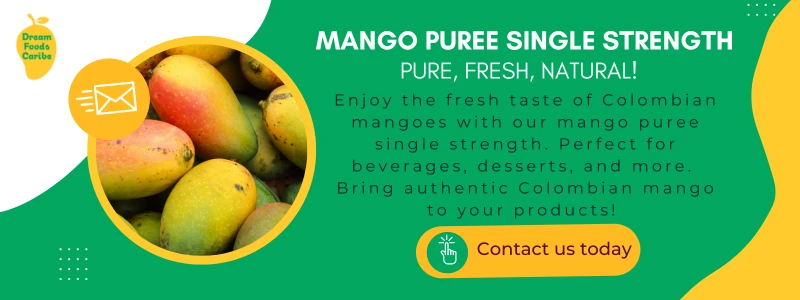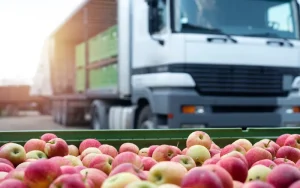In a globalized world, a Free Trade Agreement (FTA) is a mechanism of alliances or agreements that promotes trade and economic growth. But why are they so important, and how can they benefit the food sector? We explain below.
Free Trade Agreement, Why Is It Important?
Free trade has been an objective sought throughout history, especially since the end of the 18th century. This is because trade has represented a guarantee of development and economic freedom: the ability to produce and exchange goods and services.
When we speak of a Free Trade Agreement, we refer to an agreement between two or more countries to facilitate the exchange of goods and services by eliminating or reducing tariff and tax barriers.
For example, by eliminating import duties on tropical fruits, an FTA allows these products to reach international markets at more competitive prices. This benefits both producers and end consumers. The goal is to obtain more investment and provide progress facilities for the signatory parties (Jaramillo and Tonon, 2023).
FTAs Encourage Increased Trade and Foreign Investment
Economic exchange is perhaps one of the foundations of modern societies. A Free Trade Agreement is an international contract that enables regional and international transactions.
FTAs guarantee three things:
- Economic flow is not disrupted by countries’ own tariffs, taxes and other fiscal barriers.
- Regional integration between common markets is sustainable.
- It favors reverse logistics processes.
There is no question that these factors make large-scale business more dynamic. In addition, they are able to project the needs of the associated countries.
Importance of a Free Trade Agreement
A Free Trade Agreement represents a strategic framework that enhances the competitiveness of the food manufacturing sector. It facilitates access to international markets.
In food production, its impact is evident in several key areas. This is especially true for companies that work with tropical fruit products, such as pulps and concentrates. These treaties not only eliminate tariff barriers but also create unique opportunities to foster innovation and sustainability in the industry.
Relevance for Fruit Pulp Companies
For fruit pulp companies, FTAs have significantly reduced export costs by eliminating tariffs. This allows them to offer more competitive prices in international markets. On the other hand, they can open significant doors, such as:
- FTAs enable companies to identify niches where consumers value exotic products such as passion fruit pulp or mango. This diversifies their commercial opportunities and positions them in high-value markets (García, 2021).
- International competition fosters the development of sustainable and attractive packaging. They can be considered as ready-to-use individual portions, increasing their appeal in supermarkets and convenience stores (Márquez et al., 2024).
- FTAs allow the acquisition of modern machinery, such as deep-freezing systems, which guarantee freshness and quality. This is essential for competing in demanding fruit pulp markets (Subrei, 2023).
- Trade agreements open the door to international collaborations. An example is the co-development of pulp blends adapted to local tastes, increasing the product’s added value.
- They simplify customs procedures, improving the distribution channel times. As a result, perishable products, such as fruit pulps, arrive fresh and in optimal conditions at their destinations (García, 2021).
- FTAs promote sustainable and competitive development in the fruit pulp industry. They contribute to a global food industry that is more resilient, responsible and food sustainable.
The Opportunity for Food Industries
For food companies, the Free Trade Agreement opens the possibility of accessing new markets. This is all under tariff protection and competitiveness frameworks.
These agreements provide a favorable environment for the commercialization of export crops needed for consumption in other countries. This “need” creates the opportunity to offer stable supply channels over time, ensuring material, technological, and social progress (Gallardo, 2024).
The parties to these agreements complement and expand each other. This results in greater market stability, benefiting competing nations and companies, as well as citizens in the broader socioeconomic chain.
As we can see, FTAs benefit companies by facilitating their international expansion. They also benefit citizens by creating jobs, improving access to products and services, and strengthening the local economy. Moreover, they boost competitiveness and contribute to reducing inequalities between nations. In short, it is essential to take full advantage of the benefits of a Free Trade Agreement. This ensures that the best flavors reach tables and factories around the world.
Referencias bibliográficas:
- Diario del Exportador. (2024). Los tratados de Libre Comercio (TLC): Beneficios y estrategias para su aprovechamiento.
- García, J. (2024, July 26). Tratados comerciales: impacto económico y beneficios. Blog GT Logistics.
- García, P. (2021, Julio 01). Derecho humano a la alimentación e igualdad en el tratamiento a los productores de alimentos, en los decretos expedidos en el marco del Estado de Emergencia Social, Económica y Ecológica del gobierno de Iván Duque. Revista Controversia, (216), 169–200.
- Jaramillo, S. y Tonon, L. (2023, julio 01). Ventajas y desventajas de la firma de tratados de libre comercio. Revista internacional de administración, Universidad Andina Simón Bolívar, No. 14, 155-177.
- Gallardo, L. (2024, Agosto 09). Potenciando el comercio agroalimentario: guía para aprovechar los acuerdos comerciales internacionales. IICA, sembrando hoy la agricultura del futuro.
- Hernández, L. (2024, octubre 25). Más que tequeños del Mercadona: Los productos de alimentación latinos ganan espacio en los supermercados españoles. El País.
- Márquez, O., Reyes, R., Rojas, I. y Reyes , I. (2024). Evaluación del impacto nutricional, ambiental y económico de los desperdicios orgánicos del tianguis de Ozumba, Estado de México. UVserva, (16), 245–257.
- Gironza, M. y Giraldo, J. (2023). Plan de mercadeo internacional para la comercialización de pulpas de frutas en la empresa caso de studio. Repositorio Icesi. Subrei. (2023). Impacto de los tratados de libre comercio en Chile. Subsecretaría de Relaciones Económicas Internacionales.







